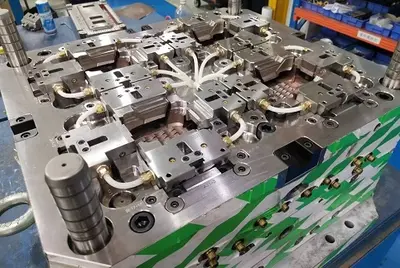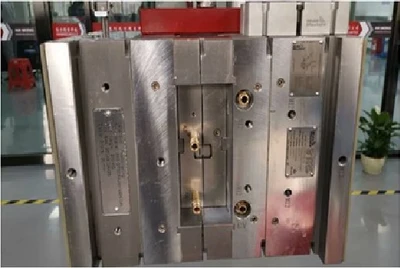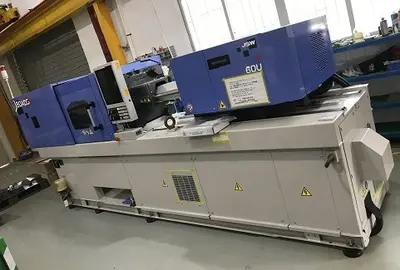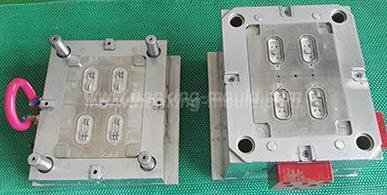

In the injection molding production process, temperature and humidity control of the mold are key factors that directly affect the quality and production efficiency of the product. However, the temperature and humidity control system of the mold may malfunction, causing difficulties in production. We will explore how plastic injection molding factories can solve temperature and humidity control system failures in molds to ensure normal production and stable product quality.
a. Check sensors and measuring equipment: Firstly, the plastic mold factory should check whether the temperature and humidity sensors are working properly. Check if the connection of the sensor is loose and if it has been physically damaged. At the same time, check the accuracy and stability of the measuring equipment to ensure the accuracy of temperature and humidity measurement results.
b. Check the controller and adjustment device: Secondly, the plastic mold factory should check the working status of the temperature and humidity controllers. Check if the power supply of the controller is normal and if there are any abnormal alarm messages. At the same time, check the working status of the regulating devices, such as heaters and cooling devices, to ensure their normal operation.
c. Check electrical connections and signal transmission: In addition, the plastic mold factory should check the electrical connections and signal transmission of the temperature and humidity control system. Check if the cable connections are secure and if there are any issues such as short circuits or open circuits. At the same time, check the stability and accuracy of signal transmission to ensure that the set values of temperature and humidity can be transmitted and executed correctly.
d. Preventive maintenance and upkeep: In order to reduce the occurrence of temperature and humidity control system failures, plastic mold factories should regularly carry out preventive maintenance and upkeep. Clean sensors and measuring equipment, check the operation status of controllers and adjustment devices, and replace aging equipment and components in a timely manner to maintain the stability and reliability of the system.
a. Backup equipment: Plastic mold factories should prepare backup temperature and humidity control equipment. When a malfunction occurs, the faulty equipment can be quickly replaced to ensure the continuity and normal operation of production.
b. Spare parts: The plastic mold factory should prepare spare key components such as sensors, measuring equipment, and controllers. Spare parts should be stored in a dry, clean, and temperature appropriate environment to ensure their quality and availability. When a malfunction occurs, the faulty components can be replaced in a timely manner to quickly restore the normal operation of the system.
a. Personnel training: Plastic mold factories should strengthen the technical training of their employees to improve their ability to diagnose and troubleshoot temperature and humidity control systems. The training content can include basic electrical knowledge, fault diagnosis methods, and common troubleshooting skills.
b. Technical support: Plastic injection mold factories can establish cooperative relationships with equipment suppliers and professional organizations to obtain timely technical support. Equipment suppliers can provide professional repair and maintenance services to solve complex faults. Professional institutions can provide technical consultation and training support to help plastic mold factories improve the maintenance and management level of temperature and humidity control systems.
Taking the HanKing Mould plastic mold factory as an example, we have taken the following measures when dealing with temperature and humidity control system failures in the mold:
a. Regularly check the temperature and humidity sensors to ensure their accurate operation.
b. Equipped with backup temperature and humidity control equipment and key components for replacement in case of failure.
c. Train employees to diagnose and troubleshoot temperature and humidity control systems.
d. Establish cooperative relationships with equipment suppliers and professional organizations to obtain timely technical support.

Dealing with temperature and humidity control system failures in molds is crucial for plastic mold factories to ensure normal production and stable product quality. Through measures such as fault diagnosis and troubleshooting, preparation of backup equipment and spare parts, personnel training, and technical support, plastic mold factories can effectively handle temperature and humidity control system failures of molds, improve production efficiency and product quality, and ensure production continuity and stability. At the same time, regular preventive maintenance and upkeep are also important measures to reduce the occurrence of faults. Plastic mold factories should strengthen the management and maintenance of temperature and humidity control systems.
For more requirements and questions related to injection molds, please send an email to yoyo@hanking-mould.com.






 Call us on:
Call us on:  Email Us:
Email Us:  No.23, XingYi Road, Wusha Community, Chang'an Town, Dongguan City, Guangdong Province, China.
No.23, XingYi Road, Wusha Community, Chang'an Town, Dongguan City, Guangdong Province, China.